INTERVIEW | Newly appointed Attorney-General Tommy Thomas gave Malaysiakini and The Edge an exclusive interview last Thursday – the day senior lawyer Muhammad Shafee Abdullah was charged with money laundering.
In his first major interview since he was tapped as A-G, the 66-year-old barrister and author of two books spoke about his gargantuan duties three months into his appointment as the top legal officer in the country.
In particular, Thomas talked about the difficulties and challenges faced by the Attorney-General’s Chambers (A-GC) in the 1MDB case, the civil action taken by the new Malaysian government in Singapore, United States and Switzerland to recover the assets of the failed sovereign wealth fund, the criticisms in his appointment of outside lawyers to handle the 1MDB and SRC International prosecution and the retrieval of Jho Low’s jet in Singapore.
On the difficulties his Chambers faced, Thomas said, “I would say is that never in the history of the Chambers has there been so much demand for prosecution, which is because of the past misdeeds that have accumulated over the years, problems that I’ve inherited.”
On 1MDB, the A-G said the Chambers had formed a special team to handle one of the most complicated legal cases ever faced by the country.
He talked about launching legal actions in the United States, Singapore and Switzerland, where lawyers there have been appointed to begin the civil recoveries of the 1MDB assets, with the objective to put the proceeds in a specially set-up fund.
“We have opened an account, a special segregated new account, controlled by MOF (Ministry of Finance). It’s the MOF and the new directors of 1MDB who are controlling it. It is specially set up. After the GST RM19 billion hole, there has to be a specially protected, segregated trust account earning interest and controlled by honest signatories,” he said.
Although there have been calls for enforcement agencies such as the police and the Malaysian Anti-Corruption Commission (MACC) to be given prosecutorial powers, Thomas is against the idea.
“I’m against those who say MACC must prosecute. They don’t know how much power that will give to MACC, if that happens. The existing system is perhaps the least worst. But the disadvantage of this is if the agencies do not give us the investigation papers (IPs) then the AGC cannot do much. We cannot do anything until the IPs are given. So until today, there is not a single IP on 1MDB given to us.”
The AG also talked about the criticisms in his appointment of senior lawyer Sulaiman Abdullah to lead the prosecution against former Prime Minister Najib Abdul Razak in the SRC International case and former Federal Court Judge Gopal Sri Ram on 1MDB.
“Domestically, the A-G’s Chambers has in the past appointed local lawyers. AG’s Chambers appointed Datuk KC Vohrah, Tan Sri Cecil Abraham and Dato’ Sunil Abraham and their firm, Zul Rafique, for many civil matters.
“In fact, the SRC (prosecution) team was happy (with Sulaiman) because most of them were tutored by Sulaiman at (the) university. They look to Sulaiman as their intellectual guru. One must look at it in terms of what Malaysia needs. The people of Malaysia want justice, they want speedy justice. The people of Malaysia deserve the best and the brightest to appear for them,” he said.
Thomas also explained how it would be difficult for him to lead the prosecution on SRC and 1MDB. He offered the example of a case he once handled.
“When the trial starts, you have to be full time with the trial, because at night you have to prepare cross-examination questions. When the trial is over, you have to do research and draft exhaustive written submissions. I was a hands-on barrister who took my court commitments seriously and professionally.
“Knowing that first hand, you cannot combine that with the demands of the A-G, where the PM wants to see you, the cabinet wants to consult you, Parliament is sitting, and so on. It’s just not possible, you cannot combine all these demanding tasks with the work of counsel in court.”
Thomas also spoke about how he has changed his opinion about Prime Minister Dr Mahathir Mohamad, a man whom he criticised many years ago. According to him, Mahathir is a “reformed PM”. Upon taking office as AG, he said the world’s oldest prime minister told him, “Tell me if there’s something wrong, tell me if I can’t do it.”
“So I said, ‘Yes, Tun, I will’.”
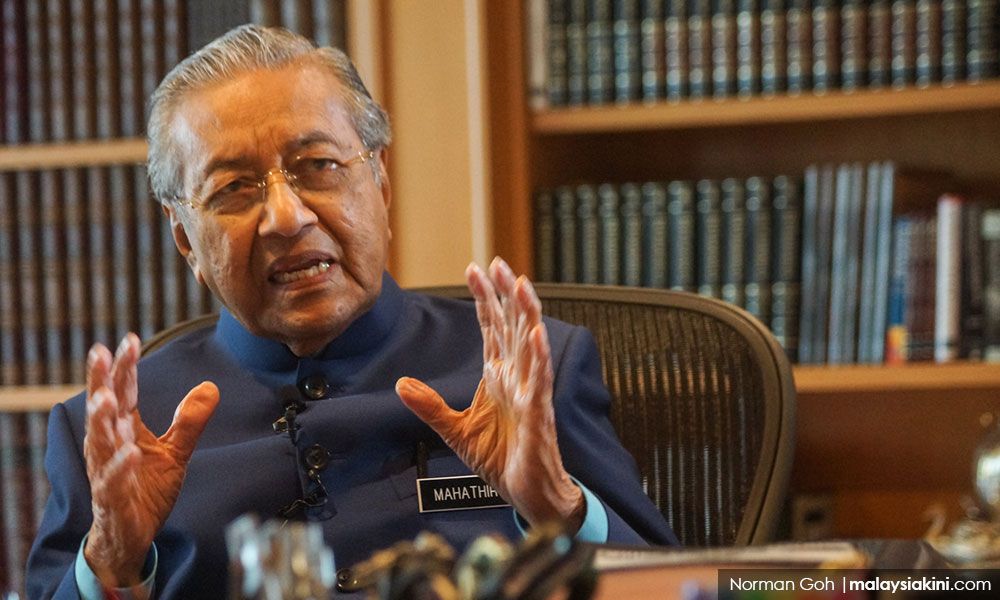
Here is the first part of the interview. The second and final part will appear tomorrow.
Question: What’s your assessment of your first 100 days?
Thomas: The challenges have been much greater than I expected. What I said on the first day remains, which was (that) I have three priorities.
Firstly, everything to do with 1MDB, which is not just the criminal aspect, for there’s the civil recovery as well. Secondly, the lopsided contracts and thirdly, law reform.
Those have always been my focus, and remain my focus. But (it was only when) I came into the office and sat down and started doing work, that I realised the awesome responsibilities that are attached to the office.
And I think you will not know it unless you are sitting here. It’s difficult for anyone from the outside – certainly not a private practitioner, as I was. Even somebody from this Chambers – there are about 1,200 lawyers here – even they won’t understand the huge amount of responsibilities (of the AG). So that has surprised me.
How about the competency of your officers? There have been some criticisms that there’re not enough competent people dealing with the prosecution. Do you find that a problem?
I think that’s unfair. We have tremendous specialisation, but of course, lacking in some areas. For example, in things like AMLA (Anti-Money Laundering, Anti-Terrorism Financing and Proceeds of Unlawful Activities Act), which is very critical in the next few years, and Mutual Legal Assistance – again very critical because we’ve got to deal with different countries – we got top-class specialists.
And for the contracts review, we also have excellent people as I’m personally dealing with them. In so far as prosecution is concerned, what I would say is that never in the history of the AGC has there been so much demand for prosecution, which is because of the past misdeeds that have accumulated over the years – problems that I’ve inherited.
Whether it’s 1MDB or not, there is a long line of cases waiting once the IPs are delivered to me. Even if you got 1,000 world-class prosecutors, it’s just not enough. That tells you – it’s a commentary on the alleged crimes that have been built up over the years. So the pressure is awesome. That’s why we’re setting up the 1MDB unit, we’re setting up different units to cope with the cases because we’ve never done this before. If AGC had done this from 201… if prosecutions took place from 2011 or 2012, then it would not have built up.
And just to get it in relative terms, please look at the US. Their DOJ (Department of Justice), which is obviously world class because they’ve got so many talented people, forensic accountants, lawyers and unmatched resources… look at how the Special Counsel, Robert Mueller, and his team, are doing. It took more than a year before they charged anybody. Then they went very fast, they’ve charged, I think, about 20 people in the last three months and they have got a few convictions.
But it took them one year. And I tell you the 1MDB scandal is much, much more complex than what (US President Donald) Trump has allegedly done. 1MDB is the world’s greatest kleptocracy!
You mentioned there are a criminal aspect and the asset recovery aspect with regard to 1MDB. Maybe you can share with us the approach your office is taking in regard to these two aspects?
On criminal, we can’t do anything until the IPs (investigation papers) come. Just to remind you that in our system – many countries also have it in order to prevent too much concentration of power – the idea is to distribute power. Checks and balances – so the four or five investigative agencies in Malaysia, like the police, MACC, Bank Negara, Securities Commission, Customs – there are about five or six bodies which investigate, they cannot charge. Because otherwise, they would be too powerful.
The A-GC prosecutes. We have the sole monopoly on prosecution and we should not carry out investigations because we’re already so powerful, so can you imagine how much more powerful we will be if we investigate (as well). So I’m against those who say MACC must prosecute. They don’t know how much power that will give to MACC, if that happens. The existing system is perhaps the least worst.
But the disadvantage of this is that if the agencies do not give us the IPs, then AGC cannot do much. We cannot do anything until the IPs are given. So until today, there is not a single 1MDB IP given to us. When it came to Jho Low (who was charged in absentia for money laundering), AGC asked the police to share their investigations, and then we charged him. 1MDB, not yet, but, hopefully, it will happen soon.
Do you know how many IPs have been opened as far as 1MDB is concerned?
No, I don’t know. And of course, you know MACC’s public position – I think they reiterated that about two weeks ago – is 60 percent (completed). They’ve been saying that to me from the time I took office. So what they’ve told me is what they’ve told the public: 60 percent of the first IP of the 1MDB is done.
And of course, ‘1MDB’ is a shorthand description of a massive fraud done over five, six years across the world, in numerous transactions. So you really have to look at it the way the fraudsters planned it. The fraudsters designed transaction after transaction, deal by deal. So there could be a 2011 fraud, a 2012 fraud, a 2013 transaction, a 2014 deal and so on.
Your immediate predecessor, Tan Sri (Mohamed) Apandi Ali, has been accused of conspiring to cover up the 1MDB scandal. Can we expect charges to be brought against him as well?
I don’t know anything about that. We have not gone in that direction. What I can tell you is – and all of you know it – is that there was no prosecution on 1MDB during his three-year tenure. That’s a fact. You have to ask him why there were no prosecutions, and none during the previous A-G’s time, too.
Because, as you know, the origin of 1MDB was the TIA (Terengganu Investment Authority) which was happening in 2009 and 2010. Anyone living in KL (Kuala Lumpur) would be aware that there were things horribly wrong. I was aware of things that were questionable in 2009 and 2010 just by mixing with the business community, journalists and politicians. Those in KL with an informed opinion knew that something was wrong in 2009 and 2010. So why didn’t my predecessors do anything about it? You have to ask them.
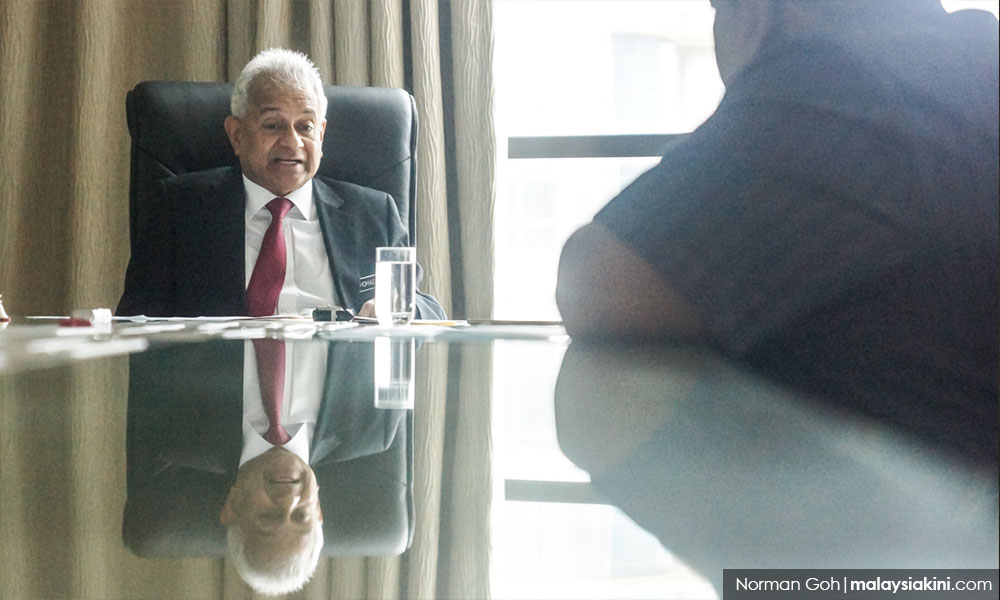
Do you have any authority to ask them (investigators) to update you or to speed up?
Yes, they do the update and all that. But that’s of no use, I rather not be updated. I want the complete IP. It’s better to have the complete package because, otherwise, you’re reading it twice. If you ask my team to read it when it’s at 60 percent and then hen the 100 percent comes, you have to reread. So it’s of no help, of no practical assistance, unless they give us the complete package.
Now I must answer the civil part. The civil part is the one that’s absolutely neglected. Everybody forgets that because the criminal dimension is the one that is ‘sexy’ and ‘newsworthy’.
Civil recovery is the one that’s underrated and not understood at all. It is essentially to recover as much of the stolen stuff as possible, and most of it is abroad. So we start with the US. The DOJ, as you know, they have been successful. They began in 2016, with the Loretta Lynch press conference with the filing of complaints where they have frozen assets – which we say, and the US government does not deny, belongs to us in trust.
Because taxpayers’ money were used, indeed stolen, to buy these assets, so they are assets that belong in trust to Malaysia but were held by other people who misused it. So we have to stake a claim. Again, we lost three years of it.
I must remind you that the previous government distanced itself. Its public position was these weren’t Malaysian assets when actually they are Malaysian assets. Until GE14, Malaysia’s official position was they were not Malaysia’s assets. Seldom would a beneficiary tell the world “these are not my assets”, and that’s what Malaysia was doing. We only started telling the truth after GE-14.
So that’s the US, we have to intervene. We have appointed lawyers and they’re going to intervene in court proceedings because it’s quite technical and related to sovereign immunity and jurisdictional questions. We are receiving advice, and hope to make a decision shortly.
Then Singapore, it’s also started. Again, it’s the same process. We have appointed lawyers and they are appearing in court. We’ve got some low-hanging fruits. But where there are opposition and contest, it’ll take five to six months. This first group of defendants did not object at all. They relinquished all claims. They surrendered, so it’s no problem.
And Singapore wants the identities of the defendants to be anonymous. One can understand because Singapore wants to encourage more claimants to give up their claims, and in return, Singapore would keep confidential their names. That makes sense. We just want the assets.
It (the identities of the defendants) will forever be anonymous?
That I don’t know, it is a matter for Singapore to decide. But for us, we want the monies returned to Kuala Lumpur.
Does your office have an indication as to how much money (is involved in Singapore)? The US DOJ has mentioned US$4.5 billion in its suit.
Singapore has not really mentioned it because they’re not really sure themselves as there are some contests. But what will happen in the next six months or so is that we will get court orders and monies will be returned. And as you know, we’ve opened an account, a special segregated new account, controlled by MOF (Ministry of Finance). It’s the MOF and the new directors of 1MDB who are controlling it.
So it’s an MOF-1MDB recovery account?
Yes, specially set up. After the GST RM19 billion hole, there has to be a specially protected, segregated trust account earning interest and controlled by honest signatories.
This is for recovered assets from everywhere, not just Singapore?
Yes, it starts with Singapore. And then we’ve got Switzerland, again they’re cooperating with us.
The biggest one is in the US?
Yes.
It will take several years, you think?
No, I don’t think so. I think… well, the US… well, maybe. It goes asset by asset. They are ‘in rem’ actions.
So it’s not a collective (action)?
No. The US claims – let’s say they have got 10 separate complaints, then it’ll be because these are 10 different assets. So they may have one for the yacht, one for the artwork, one for this land, one for that land and so on. Just like our admiralty claim for the yacht: it is also ‘in rem’. What ‘in rem’ means is a claim against an identified property, as opposed to an individual, which would be an ‘in personam’ action.
Have there been any challenges in the US? Jho Low?
Yes, court challenges.
To be clear, in Singapore, what exactly are the assets that are involved. Is the (private) jet one of them or not?
Most are bank accounts. Cash in bank. But I think there may be one or two properties: apartments.
What about the private jet?
The private jet, we are in no hurry to receive it. Because as things stand, Singapore has done it skilfully. Singapore has taken steps to ensure that the plane cannot fly off without air traffic control, which they will not give. The plane cannot leave Singapore airspace, to the best of my knowledge.
But the maintenance of the plane remains Jho Low’s. So, from Jho Low’s perspective, he’s got the worst of both worlds. He’s got to maintain the plane, which is parked on the runway but cannot fly it out.
From our perspective, there’s no hurry to get it – it’s safe there – let us sell the yacht, then we can turn our attention to the plane. Unfortunately, the plane doesn’t come within our admiralty jurisdiction, so it’s more complicated. We have to be concerned about giving a clean title to the buyer.
There have not been complaints about the A-G’s office using private lawyers overseas to help in asset recovery. And yet when the AG’s office uses the private lawyers here to help in the case of the yacht, or even bringing in Tuan Haji Sulaiman Abdullah and Datuk Seri Gopal Sri Ram, there has been criticism. Would you like to respond to that?
First of all, in foreign jurisdictions, we have no choice, absolutely no options. So we have to use local lawyers there, for instance, Swiss lawyers in Switzerland. In so far as Malaysian lawyers, I think what has surprised me is the outcry, as if this was the first time that AGC has used external lawyers. I asked the AG’s Chambers to do some research on previous appointments.
In the last 20 years, beginning with our first dispute with Singapore in the International Court of Justice (ICJ) in the Pulau Batu Puteh dispute – the first one, which was about 20 years ago, we appointed a large group of foreign lawyers, I can’t understand why we did not appoint Malaysian lawyers. The foreigners charged large sums of fees, and Malaysia lost anyway.
Domestically, AGC has in the past appointed local lawyers. AGC appointed Datuk KC Vohrah, Tan Sri Cecil Abraham and Dato’ Sunil Abraham and their firm, Zul Rafique, for many civil matters.
In our dispute with Singapore on Temasek: our joint venture in the Singapore land – whether we ought to pay the development fees. That went to arbitration. Again, I don’t see why Malaysian lawyers could not have been used. It was a straightforward case of interpretation of a contract. Quite straightforward. And I think we had three or foreign lawyers charging hefty fees!
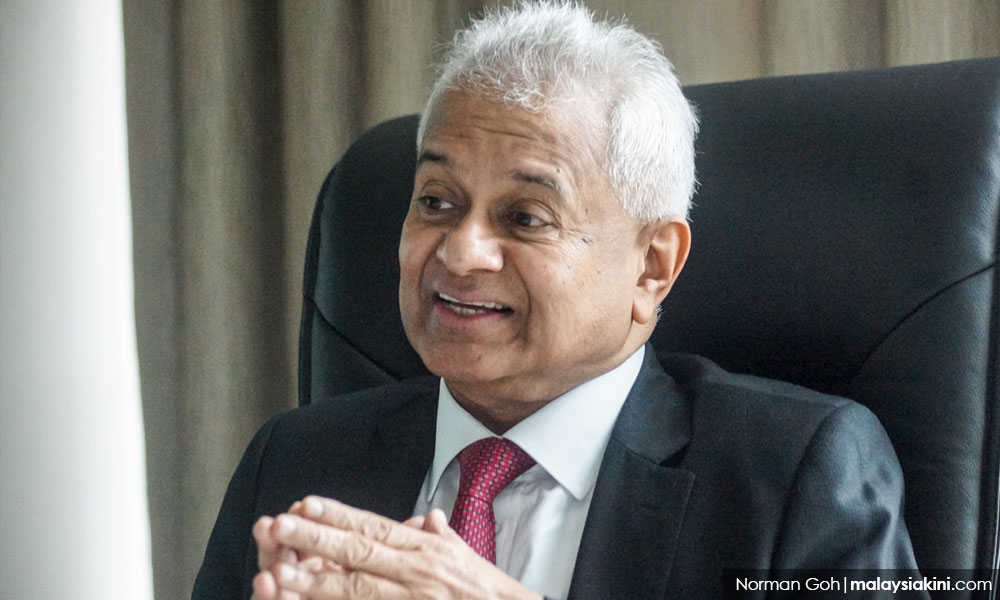
This was in Singapore?
No, in London. A dispute between Malaysia and Singapore heard in London. But it is arbitration and so any lawyer can appear. Malaysian lawyers can appear. It was followed by a trademark registration case at the EU General Court. Again, AGC appointed foreign lawyers. There were other disputes of an international nature which were all kept secret, and not made known to the public. Not even the Malaysian legal profession knew about them, but taxpayers were paying for such litigation.
Finally, with the second Pulau Batu Puteh dispute, where Malaysia wanted to revisit the dispute. Prime Minister Tun Mahathir decided to discontinue it. We had four foreign lawyers and two Malaysian lawyers – Datuk Abu Bakar bin Mohamed Sidek from Penang and Datuk Firoz Hussein bin Ahmad Jamaluddin from Kuala Lumpur. One of the foreign lawyers informed the prime minister that the case was doomed to fail. That’s why the PM decided to discontinue.
Coming back to domestic disputes, we’ve had Tan Hock Chuan acting for the Malaysian government in the Teoh Beng Hock inquest. We had Tan Sri (Muhammad) Shafee Abdullah acting for the public prosecutor against Datuk Seri Anwar Ibrahim in the Court of Appeal and the Federal Court. Actual criminal prosecution – so that’s the closest analogy to Tuan Haji Sulaiman and Sri Ram.
In civil suits, A-GC appointed Cecil Abraham and Zul Rafique for defendants such as Tan Sri (Abdul) Gani Patail, MACC and the Government of Malaysia.
Of the five lawyers I have appointed, three of them are acting “pro bono” – Sulaiman, Sri Ram and Sitpah Selvaratnam. The other two, Jeremy Joseph and Ong Chee Kwan are entitled to be paid because they are advising us in a really specialist area – shipping and admiralty – where the AGC does not have expertise, and it’s a commercial deal.
Whatever proceeds we get, hopefully in the hundreds of millions, the two lawyers should be paid. But I’m closely monitoring it – it’s an hourly rate – and of course, the MOF is also monitoring.
Could it (the outcry) be because people were taken by surprise because you mentioned 1MDB as one of your top three priorities? And now, you’re being seen as passing over the lead prosecution, so perhaps people are taken aback by that.
Possibly. But you see, you can’t have it both ways. On the one hand, the criticism is that I don’t have criminal law experience and yet when I appoint two senior lawyers who have substantial criminal law experience, the criticism continues. So one has to accept: anything one does is wrong!
But the truth is that it is just not possible to do a long trial and combine the work of A-G. I know that because when I was in practice I used to do long trials – heavy corporate commercial disputes. In fact, about a year before I left the Bar, I did a 40-day trial. It is a reported bonds case.
For four weeks before the trial, I did nothing but preparations for the trial. When the trial starts, you have to be full time with the trial, because at night you have to prepare cross-examination questions. When the trial is over, you have to do research, and draft exhaustive written submissions. I was a hands-on barrister who took my court commitments seriously and professionally.
Knowing that first hand, you cannot combine that with the demands of the A-G, where the PM wants to see you, the cabinet wants to consult you, Parliament is sitting, and so on. It’s just not possible, you cannot combine all these demanding tasks with the work of a counsel in court.
But you have not completely stepped away from it…
No, I’m still absolutely in charge. Like, for example… the Shafee prosecution. The MACC team interviewed the witnesses. Sri Ram was involved in the final stages of investigations. I was involved in the preparation of the charges with the team. The final decision to prosecute is mine, and mine alone. Malaysia must use all the resources available to pursue such matters.
What about your officers within the Chambers itself, isn’t that a vote of no confidence?
Not really. Because as I’ve said, there’s just so much work, and there are many cases in the horizon as we are planning and we can see where it is going. They are part of the team and they are working together. So it’s not a vote of no confidence.
In fact, the SRC (prosecution) team was happy because most of them were tutored by Sulaiman at (the) university. They look to Sulaiman as their intellectual guru. One must look at it in terms of what Malaysia needs. The people of Malaysia want justice, they want speedy justice. The people of Malaysia deserve the best and the brightest to appear for them.
What about political pressure? Has there been any on the office since you started here, any political pressure or messages sent to you saying, ‘we want this done’, or ‘that done’?
Absolutely not. All concerned have been very good. They have all acted properly and correctly: the PM, the cabinet, the ministers. Of course, many ministers are known to me as I’ve worked with them in the past. They have left matters of law to me and the AGC. There is neither pressure nor interference.
Are you surprised that there has been no political interference, especially coming from a PM who is accused of keeping the Jdiciary on a tight leash?
No, I’m not surprised. Tun Mahathir is a reformed PM.
You truly believe he has reformed?
Absolutely. In my dealings, Tun has been right and proper. In fact, on the first day, he informed me, “Tell me if there’s something wrong, tell me if I can’t do it.” So I said, “Yes, Tun, I will.”
Have you changed your opinion of Mahathir? You were quite critical of him before.
(Laughs) There’s no doubt in my mind that the PM and the members of the cabinet whom I have dealt with genuinely believe in reform. So I can confirm that I am trying to be a reforming AG in a reforming government!
PART 2 of The Interview
Par
Thomas talks about law reforms, the prosecution of Shafee, the dropping of charges against Finance Minister Lim Guan Eng and lopsided government contracts, among others.
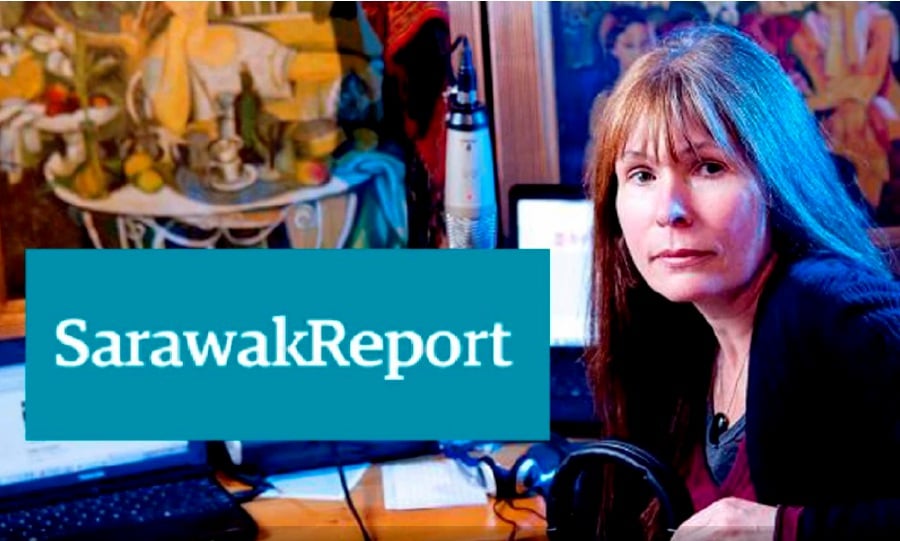



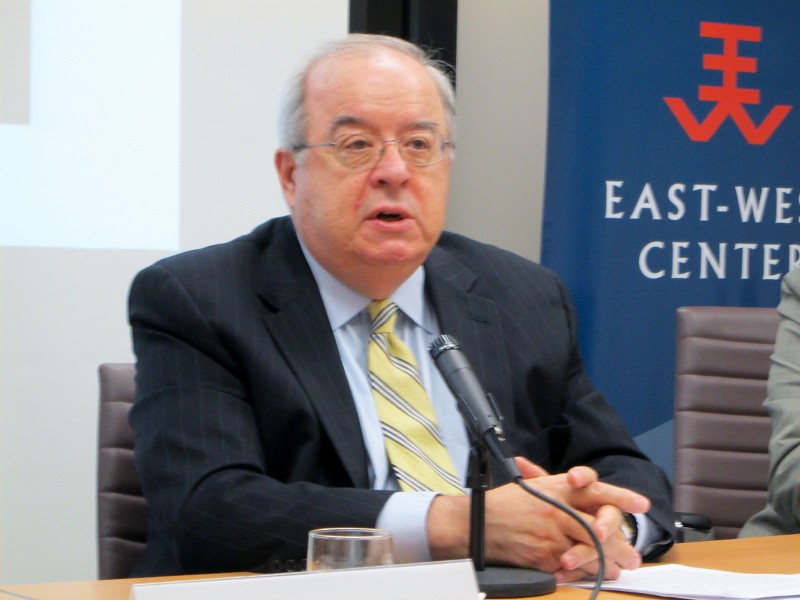
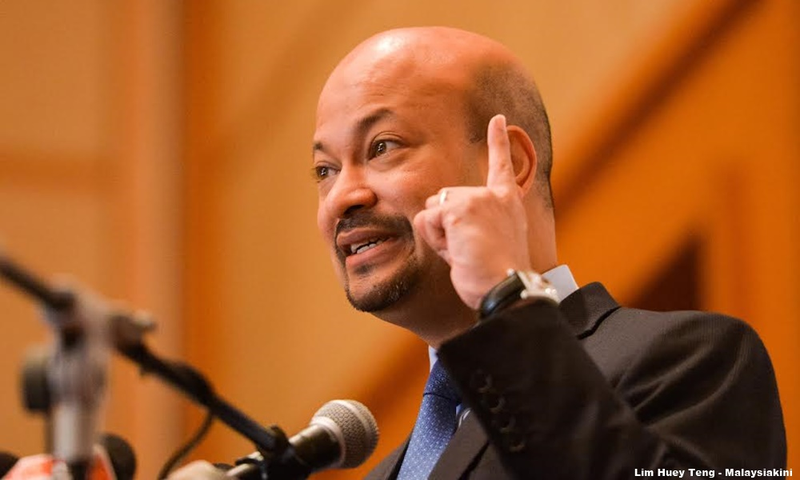



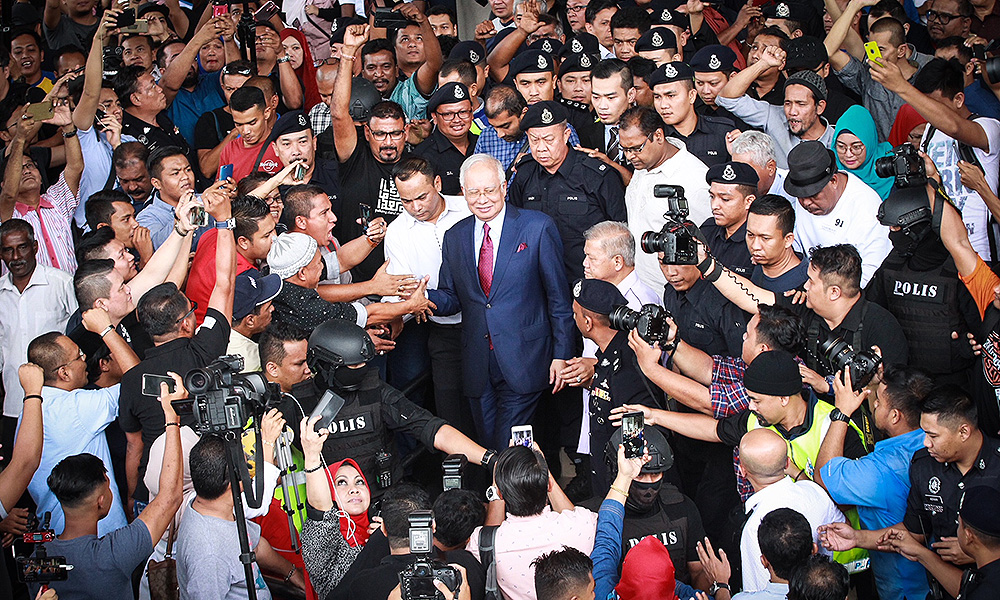
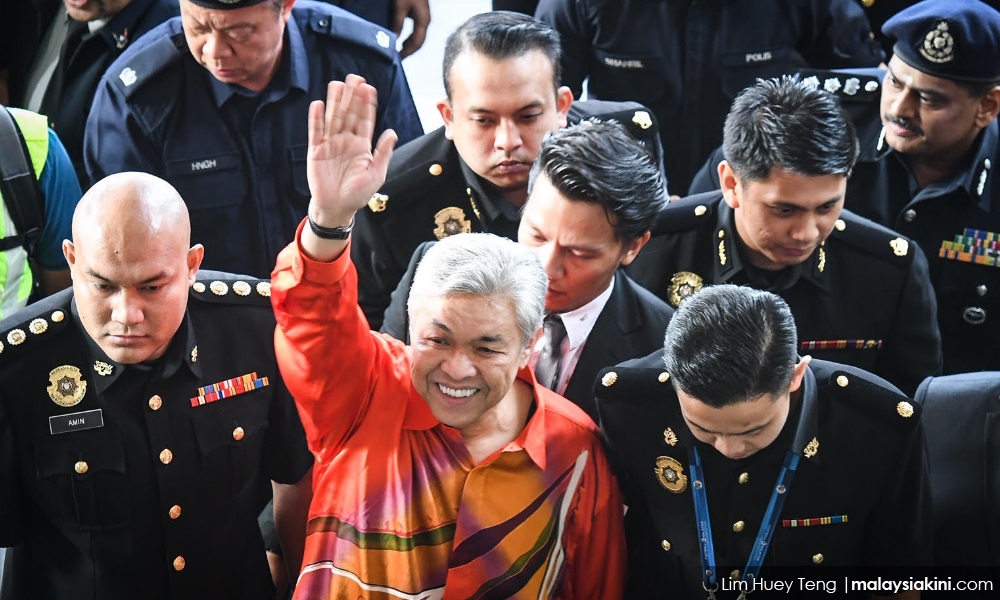
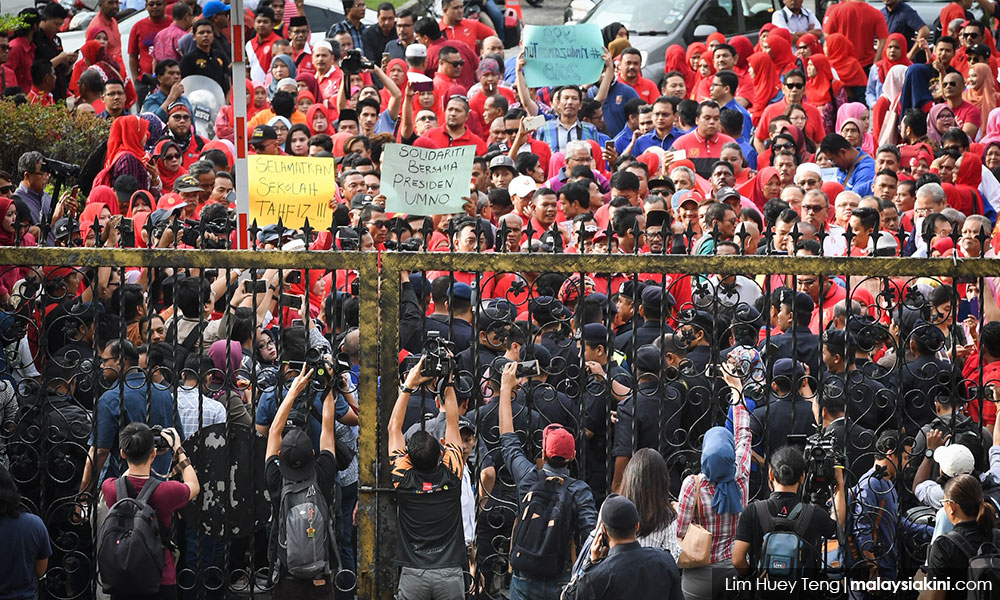
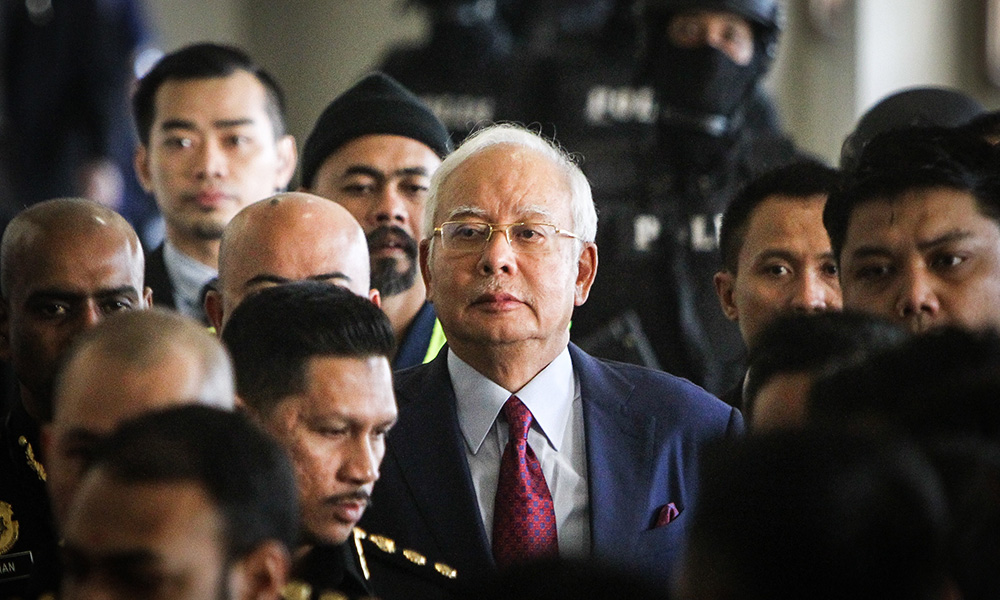





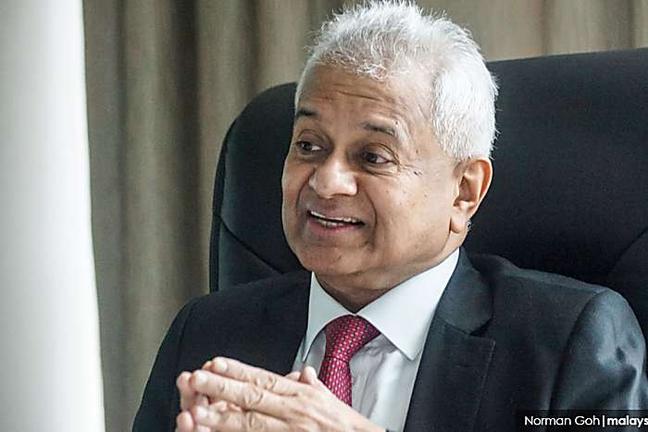








AG wants ministries, stakeholders to help speed up law reforms
INTERVIEW | In his first major interview since his appointment as attorney-general three months ago, Tommy Thomas spoke on the mammoth task ahead to amend or repeal a litany of oppressive laws as pledged by Pakatan Harapan.
“A-G’s Chambers has prepared a list of the promises that the PH [Pakatan Harapan] made in the manifesto. The list for law reforms runs to nine pages – so many Acts are mentioned. It is just an unbelievably tall order,” Thomas told Malaysiakini and The Edge in a 90-minute joint interview held at his Putrajaya office last Thursday.
“And it’s understandable because they are trying to clean up after 60 years of one coalition’s repressive laws. Looking at this law reform list in the manifesto, the process may take as long as a decade!” the 66-year-old AG said.
Therefore, he wanted the various ministries and stakeholders to be actively involved in law reforms to hasten the process.
“The ministries must help out. Ministers must push their respective ministries. Let’s take the Universities and University Colleges Act, that’s under Education [Ministry]…
“What we would really want to speed up the process is for the education minister to push his ministry and his legal advisors to prepare amendments and pass them to us. Our parliamentary draftsman will have the final say.
“The reason I say this is because as the stakeholders, the ministry will presumably know more about Universities and University Colleges [Act] than anybody else,” he said.
However, he urged patience as the process may take time.
“As a practising lawyer, I can say that when there’s hurried legislation, it’s not good. The longer it takes, say two to three years, to consult as many groups as possible, the better the finished product is. You would never get the perfect law. [But] everyone should participate in law reform. No one has a monopoly of knowledge or experience.”
Thomas also spoke in detail over the purported lopsided contracts signed by the previous government, and paid tribute to the unsung heroes in the A-G’s Chambers who objected to them, but were overruled by BN ministers.
“Internally, there are hundreds of such contracts. But what we didn’t realise is the number involved. We have highway contracts, services contracts, private finance [initiative] which are build-lease-maintain-and-transfer (46 of them), ports, etc. Many categories – there are over 350 contracts of that nature.
“Also, procurement contracts – we just drew a line – and that’s over 300 contracts of them,” he said about the lopsided agreements.
“Some of these A-G’s Chambers members were very unhappy because when they objected to these lopsided contracts prior to their execution, they were overruled by their former political masters, that is, ministers. They are unsung heroes. They are civil servants, and the previous PM and the MOF [Ministry of Finance] just brushed them aside.
“They are therefore familiar with these contracts. But the trouble is that these contracts have clauses that are very favourable to the counter parties, and unfavourable to the government.
“We are trying to be creative and imaginative. At least two or three times a week, I spend hours with the contracts review lawyers. My corporate commercial litigation experience is combined with the draftsmen and technical advisers in [the] Chambers,” said Thomas.
He also spoke about the absurdity of the previous government in going with such questionable contracts where taxpayers are made to pay more. He gave an example of an actual case of a private finance initiative (PFI) project.
“The cost is RM350 million, over a three-year period. Just like you are building a house, so payment will be against the architect’s certificate – progressively. So after three years, XYZ goes away and receives payment of RM350 million, and we receive the project built for us on our land.
“But under this build-lease-maintain-and-transfer PFI, you have the construction, but you also have a 22-year contract where the government must continue paying for maintenance and other kinds of charges, which are just absolutely ludicrous which does not make any commercial sense.
“The effect of it is that the government (taxpayers) have to pay literally three times more. So in the RM350 million example, taxpayers pay RM1.1 billion over 22 years, as opposed to RM350 million over three years. As the PM has said many times, ‘Whoever did these stupid contracts?’”
Thomas also responded to criticisms he and the A-G’s Chambers faced in dropping the charges on Finance Minister Lim Guan Eng and other Pakatan Harapan-linked politicians such as Deputy Rural Development Minister Sivarasa Rasiah and former PKR parliamentarian N Surendran.
“I think what must not be forgotten is that [the] Chambers did not hide behind the constitutional and legal position in Malaysia from Merdeka that the A-G, as public prosecutor, does not have to explain, or give reasons for a decision to prosecute or to withdraw charges.
“Therefore, although there is no legal or constitutional obligation for public prosecutor to explain why it did not wish to continue with the prosecution against Lim, we nevertheless offered it.
“Instead of being credited for his openness, [Mohd] Hanafiah [Zakaria] was criticised for his lengthy explanation. This is probably the first time since Merdeka that a prosecutor has explained his decision,” he said adding the other cases were dropped because they were politically motivated.
“The right question that should be asked is – and it applies to Lim Guan Eng also – why were these people charged in the first place?
“I inherited a massive problem. In the past three months, my office – and about 90 percent of these are addressed to me personally – received about 300-400 written representations from lawyers and members of public,” he said of the many appeals he received to review the charges.
Thomas also spoke of the brickbats he received on the charging of former premier Najib Abdul Razak’s lawyer Muhammad Shafee Abdullah (photo) last week for money laundering and tax evasion.
“The answer to that is an accused lawyer cannot say, ‘Please do not charge me, I enjoy legal immunity that nobody else in Malaysia does’. All of us from the PM, are under the law, we don’t enjoy immunity.
“An accused lawyer cannot say, ‘Please do not charge me because if you charge me, some of my clients will not have a lawyer of their choice, or they will have problems finding a replacement lawyer’. That is absolutely irrelevant and unacceptable. The law must take its course, regardless of consequences.”
He stressed that Prime Minister Dr Mahathir Mohamad did not know that Shafee was to be charged. “It was absolutely my decision,” he said.
Najib had claimed that Shafee was charged to deny him a chance to get a fair trial.
Here is the second and final part of the exclusive interview. The first part appeared yesterday.
Question: Are you making progress with reforms? All the headlines have been on 1MDB and little have been about reforms.
Tommy Thomas: Yes, as to law reform, AGC [Attorney-General’s Chambers] has prepared a list of the promises that the PH made in the manifesto. The list for law reforms runs to nine pages – so many Acts are mentioned. It is just an unbelievably tall order. And it’s understandable because they are trying to clean up after 60 years of one coalition’s repressive laws. Looking at this law reform list in the manifesto, the process may take as long as a decade!
What would be your priority?
Let me explain. First of all, you need parliamentary time. Parliament must sit longer and give more time for law-making. Parliament has many functions – debates, questioning and so on, but also law-making.
I have told some stakeholders: please prepare your own bills. So if a women’s organisation has complaints, it should prepare its own bill. If the lawyers, the engineers, or whatever, the business community likewise: it’s easier because they know their problems. They can give us their draft laws: whether we accept them is something else.
But if they give it to us, it’s faster, it speeds up the process of law reform. For example, the repeal of the Anti-Fake [News Act] (which is in the news again) [because it was blocked by the Senate], it was done by Gobind [Singh Deo]’s ministry very quickly, and then sent to us. The GST, which is made up of five or six laws, was also done incredibly quickly, coming out of MOF to our parliamentary draftsman.
On the Anti-Fake News Act, a BN senator explained that the repeal was blocked on grounds the law was relevant and should be improved [and not abolished]. Will it be given a second chance to be passed?
Under our Federal Constitution, you can’t do anything for one year.
Yes. Let’s say an IP (investigation paper) comes to you, say the police want to take action against somebody based on this, are you going to take action?
I don’t want to foreclose my discretion if that occurs in the future. But I would be reluctant. I don’t think anyone in A-GC supports it. But it puts us in a difficult position because unfortunately, it is still a law on the statute books. So it still forms part of the laws of Malaysia, and one has to respect our law. Hence, an unsatisfactory position!
[And what happens] after one year?
After that, it has to be re-presented to the Dewan Rakyat, and the Dewan Rakyat has to pass it again. Then it goes back to Dewan Negara, and then they don’t have a say. If they don’t pass it, it will be passed directly to His Majesty, the Agong. But there’s a one-year cooling-off period.
What’s the status in terms of repeal/amendment or whatever of OSA (Official Secrets Act), Sedition Act, Printing Presses and Publications Act, the Universities and University Colleges Act…
The ministries must help out. Ministers must push their respective ministries. Let’s take the Universities and University Colleges Act, that’s under Education [Ministry] I assume. What we would really want to speed up the process is for the education minister to push his ministry and his legal advisors to prepare amendments and pass them to us. Our parliamentary draftsman will have the final say.
The reason I say this is because as the stakeholders, that ministry will presumably know more about [the] Universities and [University] Colleges [Act] than anybody else. The lawyers in our office are just specialists at drafting, but the subject matter or the content of an Act is something that different people would know more of. If there are any health/hospitals-related bills, then it’s better for the Health Ministry, and so on.
The ministries should drive the changes?
Yes, that’s right. Take ownership. Because no one person can do it on his own. My task would be to encourage it and to facilitate it. Because historically, [the] Chambers has had a reputation, rightly or wrongly, as acting as a brake against law reform. We are now going to say, look, we support law reform, we will facilitate it.
But to expect us to draft all this, that is not possible. Because we don’t know all the problems. Like for example, the press, why can’t the press (if you have a press association), why don’t you come and see the right ministry, and say look: ‘This is our version of the new press act’, or whatever. They may or may not agree, but they will say thank you very much. It speeds things up.
That way also, the more the stakeholders there are who are involved.
You said the list itself is a tall order. Are there any going to be prioritised? For instance, the Sedition Act is still being used.
The Sedition Act is more complicated. It requires a constitutional amendment because one of the sections in the Act prohibits criticisms against the rulers: what is regarded as the privileges of the Conference of Rulers. They have to approve. But the others like Prevention of Crime, NSC [National Security Council], Sosma [Security Offences (Special Measures) Act], Printing Presses [and Publications Act], Peaceful Assembly [Act] are easier to handle. Also, the Institutional Reform Committee has done a remarkable job and presented their views to the PM. That is also a source.
What about the Political Financing Bill?
That’s on the way, but I don’t know which ministry is doing the first draft. AGC had advised that is a matter of law, there is no legal prohibition to such a new law. It’s a question of being creative about it.
All the political parties must be governed by the same rules. The objective would be to regularise financing and donation, and to have open disclosure. I don’t know if they want to have a limit on donations. It is basically to recognise that elections can only be held through contributions to political parties and candidates, and it is healthy to accept that this happens. It is the same in other countries.
The PM has said over and over again about lopsided contracts. You are quite an expert in commercial litigation and contracts. Maybe you can share some aspects or some examples, and whether these lopsided contracts can be renegotiated to reduce the financial damage to Malaysia or it’s something that’s totally out of our hands, and we have to deal and pay the compensation.
There are different types of such contracts. Again, the problem is much worse than I thought. As somebody outside following public affairs, one was aware of one-sided contracts, starting with road concessionaires, power plants and the like. But once I’ve come in now, I have seen literally hundreds of such contracts. Let’s divide them into external and internal contracts.
External, you have got Singapore and the HSR [High-Speed Rail]. Whether it’s fair or not, may be a matter of discussion, but I won’t say it’s a lopsided contract. We did well and Singapore was generous by agreeing to the suspension even though the contract did not provide for it. Hence, it constituted a variation of the original contract, which Singapore agreed to. That speaks well for good Causeway relations. That’s the HSR.
Then there’s China. The PM was outstanding. Not many foreign leaders have gone to China and persuaded China to vary its contracts. The PM convinced the president and PM of China. The problem is we have now to look at the consequences of the termination, even if it is a mutual termination by China and Malaysia of these contracts. We have to start hard bargaining on the effects and consequences of mutual termination. That’s a tough proposition. We’re forming teams to prepare for them.
How long will that take?
Hopefully not too long. A lot of money is at stake, and loans are involved. We have already told China we are ready to negotiate.
Internally, there are hundreds of such contracts. But what we didn’t realise is the number involved. We have highway contracts, services contracts, private finance [initiatives] which are build-lease-maintain-and-transfer (46 of them), ports, etc. Many categories – there are over 350 contracts of that nature. Also, procurement contracts – we just drew a line in the review on the value – and that’s over 300 contracts of them. The number is just mind-boggling. All the ministries were doing it. Again, we have a very strong contracts review team and they are reviewing these contracts.
Just within the A-GC? No external help?
Yes, with[in the] Chambers: we don’t need external help. Some of these AGC members were very unhappy because when they objected to these lopsided contracts prior to their execution, they were overruled by their former political masters, that is, ministers. They are unsung heroes. They are civil servants, and the previous PM and the MOF just brushed them aside. They are therefore familiar with these contracts.
But the trouble is that these contracts have clauses that are very favourable to the counter parties, and unfavourable to the government. We are trying to be creative and imaginative. At least two or three times a week, I spend hours with the contracts review lawyers. My corporate commercial litigation experience is combined with the draftsmen and technical advisers in [the] Chambers.
If you are able to achieve some success, it’s a lot of financial savings. right? Ultimately, it’s about dollars and cents.
Absolutely. Like China, we’ll have big savings. Singapore is not so much savings as [the project is] being deferred. That’s the objective of the exercise, the objective is to reduce overpayments.
Let me give you an example of a typical PFI [private finance initiative]. The orthodox way of doing such business would be for the government, as an employer, to ask the private sector, hopefully through tender, but there were no tenders, to build, say, a university.
The government, as an employer, uses the land belonging to it and asks, let’s say, XYZ Sdn Bhd to build the university in, say, three years. The cost is RM350 million, over a three-year period.
Just like you are building a house, so payment will be against the architect’s certificate – progressively. So after three years, XYZ goes away and receives payment of RM350 million, and we receive the university built for us on our land. Then the university opens its doors, and students come in. That’s how it ought to be.
But under this build-lease-maintain-and-transfer PFI, you have the construction of the university, but you also have a 22-year contract where the government must continue paying for maintenance and other kinds of charges, which are just absolutely ludicrous which does not make any commercial sense.
The effect of it is that the government (taxpayers) have to pay literally three times more. So in the RM350 million example, taxpayers pay RM1.1 billion over 22 years, as opposed to RM350 million over three years. As the PM has said many times, “Whoever did these stupid contracts?” That gives an innocent interpretation. There are more sinister interpretations, which you can draw!
To clarify on the Chinese deals that have been terminated. What is the total figure now we have to bargain down from?
I think the press statements suggest RM100 billion or so.
That RM100 billion will be the total cost of the project if it goes on, which includes interest payment on the loan and all that. The actual value is about RM55-RM60 billion for just the ECRL [East Coast Rail Line], but if you put in the interest that has to be paid over the years, it adds up to RM100 billion plus.
It is misleading to say it’s RM55 billion for the ECRL because the people who signed those contracts were the same people who signed the loan agreements with China because we do not have the money to build. Hence, we borrow from China.
So you have to look at the loan agreements, and the loan payments, and the true cost of the project is RM100 billion. It is dishonest to say it is RM55 billion, when it will cost the taxpayers RM100 billion after the loans are repaid. That represents the true cost of the rail project.
I think what the taxpayers would be interested to know now is what’s the cost of compensation? The ECRL, it was reported the compensation could be about RM22 billion.
It’s too early, we have not gone into negotiation. From our point of view, we do not want to pay anything. We should start negotiating from that point.
Do you want to respond to comments from MACC that they were not satisfied when the A-G’s Chambers dropped the case against Lim Guan Eng.
I think what must not be forgotten is that A-GC did not hide behind the constitutional and legal position in Malaysia from Merdeka that the A-G, as public prosecutor, does not have to explain, or give reasons for a decision to prosecute or to withdraw charges. And there’s a long line of cases for 50 years stating just that. They have always said they do not have to give an explanation.
But that is one of the reasons why in the past A-GC was much criticised, especially in the run-up towards the election to GE-14 – I was conscious of that past. Therefore, although there is no legal or constitutional obligation for [the] public prosecutor to explain why it did not wish to continue with the prosecution against Lim Guan Eng, we nevertheless offered it.
Instead of being credited for his openness, Hanafiah [the deputy public prosecutor in charge] (photo) was criticized for his lengthy explanation. This is probably the first time since Merdeka that a prosecutor has explained his decision.
In so far as my personal involvement is concerned, I cannot understand why some do not seem to understand conflict of interest and recusal. Probably the world’s most influential or well-known A-G is Jeff Sessions of the US. Within a week of his appointment, he recused himself from the Russian investigation. You cannot turn on the CNN for the past one and a half years without listening to [US] President [Donald] Trump complaining about Session’s recusal. In his case, it was also because of conflict of interest.
So what I was doing was just following a well-established principle of common law of about 300-400 years history that you must not act when you are conflicted. If you are a private practitioner, you may have many friends and persons you acted for.
Thus, from the time I entered office, any decision concerning Lim Guan Eng is not taken by me personally, just like Jeff Sessions does not act personally.
But it doesn’t render the DOJ [US Department of Justice] or the A-GC helpless and powerless. We have got 545 DPPs, and they make decisions daily. And Hanafiah is a very senior DPP. Hanafiah’s decision, in this case, represents the decision of the public prosecutor.
And you support that [decision]?
My position does not matter. If one recuses oneself, one just has no say in the matter. You remain recused, from the beginning until the end of the decision-making process.
There have been criticisms that MACC should be consulted – that the DPP who’s charging or handling the case should be consulted, like Masri Mohd Daud. At the time, I understand that they were not consulted at all, until about 7.15am.
That is the prerogative of Hanafiah’s decision as the relevant decision-maker. It is up to him. He doesn’t have to consult anybody or keep anyone informed. I believed he explained, in his statement, that he was concerned it would be leaked.
The death penalty, what’s the status of that? There’s some pressure to do away with it.
It is in the Harapan manifesto. It’s going to happen. The good news is that senior officers from the Prison Department informed me that they are against carrying out death sentences on prisoners on the death row. [The] Chambers is also against it. Therefore, no one should be hanged until the new law is enacted.
What about the issue of separating prosecution powers and the fact that you are a legal officer of the government?
We all support that. A constitutional amendment is however required. The Institutional Reform Committee also supports the separation. So no one is against it. It is thus a matter of political calculation: can the government secure the necessary two-thirds majority in Parliament to do it?
How about the criticisms that you’re dropping charges against Surendran, Zunar… etc? It was done quickly and some people are questioning the motives behind these charges being dropped so suddenly. Do you want to respond to these criticisms?
They were all politically-motivated charges. The right question that should be asked is, and it applies to Lim Guan Eng also – why were these people charged in the first place. I inherited a massive problem.
In the past three months, my office – and about 90 percent of these are addressed to me personally – received about 300-400 written representations from lawyers and members of the public.
All those representations relate to decisions made by my predecessors. So the relevant question should be, why did they make those decisions, which require me to look at it. So whatever decisions we make in a particular case – in a sense, it’s like the Court of Appeal – I will be criticized. But coming back to these examples, they were politically-motivated prosecutions. But one thing you can be assured of, I will never charge anyone for political reasons. That I assure you.
When you took up this job, did you expect the kind of criticisms you get, the kind of brickbats you have received?
Yes, and no. I’m surprised by some of the criticisms. The previous A-Gs were criticized, perhaps more by the Bar at their general meetings. I myself have spoken at such meetings of the Bar, where to the best of my memory, all the AGs in the past 50 years have been criticized by the Bar. They haven’t done that so far to me, but that cannot be ruled out.
In my case, it seems to be relentless and unremitting from members of the public. I guess if you compare, I may have received more criticisms in three months than my predecessor did in three years [laughs]! But that’s part of the job, and I can smile about it.
When vested interests are threatened by reform-minded measures, it is inevitable that a backlash would result.
Not being of the expected ethnic or religious group, does it make your job harder in any way?
Not really. The law is intended to be race-free and religion-free. Everyone in Chambers seems to behave that way. They don’t bring race and religion into their decision-making process, so that’s not a problem, really. And I certainly do not. Those who wish to criticize me for ethnic reasons will continue to do so.
Since [Muhammad] Shafee [Abdullah] has been charged, do you want to respond to questions which may be raised: now that Najib’s lawyer has been charged, this is to prevent Najib from getting true justice…?
The answer to that is an accused’s lawyer cannot say, ‘Please do not charge me, I enjoy legal immunity that nobody else in Malaysia does’. All of us from the PM, are under the law, we don’t enjoy immunity. An accused lawyer cannot say, ‘Please do not charge me because if you charge me, some of my clients will not have a lawyer of their choice, or they will have problems finding a replacement lawyer’.
That is absolutely irrelevant and unacceptable. The law must take its course, regardless of consequences.
I think the criticism is coming from the point of view that the charging came immediately or days after he made the revelation that Tun [Mahathir] was the one who pushed for his appointment [as prosecutor in the Anwar Ibrahim sodomy case]. I think people are connecting the dots, that probably the instruction came from somewhere else.
The PM did not know of the charges against Shafee because I did not brief Tun about them. It was absolutely my decision.
About the public caning in Terengganu. It’s unconstitutional as it is not being held in prison and caning women and all that. In this kind of situation, you as a legal advisor to the government, do you have a duty to inform the government that it’s unconstitutional?
It’s not so easy because syariah is a state matter and the Sultan of Terengganu is the head of religion in that state. It’s not so clear. It’s one of those areas where there is tension between the federal jurisdiction on criminal law and syariah law, which is state law.
Furthermore, these are sensitive, delicate matters that must be approached prudently. But I think the caning has started a debate, which is encouraging.
It needs a political solution.
Yes, but again not so easy.
Your position as A-G, should it be an elected position? Should you be answerable to Parliament? What are your thoughts on that?
Actually, we thought about it before. We looked at what happened in the UK which has changed its policy. The least worst option is to have a career lawyer who is sympathetic to the government because he or she has to carry out the government’s mandate, but who is well recognized in some branches of the law, you can’t be in all branches of the law, who enjoy a reputation in the Bar and the Bench.
Thus, a full-time legal advisor is better than a politician A-G.
As to being answerable to Parliament, one cannot give reasons even if one is a member of Parliament on many of these matters. You cannot give reasons if somebody asks you, ‘why did you prosecute Mr A?’
And the next day, ‘why you did not prosecute Mr X, or why did you choose to charge under this Act A as opposed to Act B?’
You cannot answer those questions because some of them are highly confidential. I would say what Hanipah disclosed in his six-page statement is as good as you can get from any AG in the world. So it does not matter whether an AG is an MP for accountability and transparency to occur.
The statement you issued when you appointed Sulaiman [Abdullah] and [Gopal] Sri Ram [as prosecutors in the 1MDB case] was unexpectedly candid. But to your detractors, they’d happily see it as proof that you can’t really cope with the demands of your job. What do you say to that?
I rather be frank and truthful.
And the job has evolved.
The legal world has changed remarkably and the problems are much graver today. If we look at common law jurisdictions – there are very few, if any, where the A-G goes to court anymore. It is just not possible. I think that’s reality.
You said you have not received any IPs on 1MDB, but given the scale and the many transactions, wouldn’t it be fair to say that there will be quite a number of prosecutions in the end?
Yes, definitely. Absolutely.
Are you aware of any state witness? Anyone?
No, because they’re still investigating, we won’t know. Whether MACC or police is talking to Mr X or Mr Y and asking them to turn state evidence or Queen’s evidence against any target, I don’t know. It may come later.
So Sri Ram and Sulaiman will have their hands full?
Sulaiman has only one trial – the SRC – and he has five months to prepare and work with my team. That’s just one case. Sri Ram (photo) is to push 1MDB and perhaps argue in court for two of those cases. Sri Ram will handle the prosecution of Shafee, and probably the first of the 1MDB cases. They’re heavy trials, so we’ll have to find somebody else for other cases. That’s why the task is awesome.
You can expect about five to six different 1MDB prosecutions, against like the [1MDB] board, the Good Star phase, the Tanore phase, the IPIC [International Petroleum Investment Company] phase, all of which you are familiar with. We would have to find a team for each different case.
Sri Ram would be asking for December trial dates in the Shafee case, and Sulaiman has a February trial date [for the SRC case against Najib].
You gave yourself two years when you took up this job. Just two years, that’s it?
[Laughs] I’d be burnt out by then, it’s long hours. I’m fit and fresh now because I know there’s a finishing line. So I’m happy to work hard for one year and nine months more!
Is there more pressure on you when Dr Mahathir said there’d be more charges on Najib?
People have asked me that over and over again. My answer always has been that when it comes to 1MDB, all the 30 million Malaysians should be concerned and talk about it because it affects their pockets for the next 20-30 years. It actually affects their pockets. I think people across the world should also talk about it because it tells you how dishonest politicians and businessmen can cheat a nation.
So I’m all for a full public discussion. But this debate does not influence my decision-making.
Are you getting the pressure from the public?
Most are nice and supportive. They understand. Whenever they see me, they tell me that I represent reforms, which they support. They say I am the face of reform.
I’ve said I don’t want people to be afraid in Malaysia. The fear element must disappear. Much of the fear element emanated from the office of the A-GC. The A-GC must no longer be associated with fear. We are, at the end of the day, 1,200 lawyers and the support staff, who must all believe and practise the rule of law.
That doctrine encompasses a large number of concepts, including free speech, due process and so on. The A-GC must believe them.
You said people are perceiving you as the face of reform. Does that burden you?
I won’t say burden. It’s just very high expectations. I just want to fulfil it. I hope I can live up to them. I won’t see it as additional pressure. I really do not want to disappoint them.